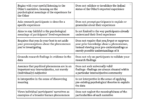Is phenomenological psychology interpretive?
Mar 27th, 2019 | By Marc Applebaum
I recorded this short talk in response to psychology students who asked “What does “interpretation” mean in phenomenological research?” Merleau-Ponty makes a critical distinction in the first pages of the Phenomenology of Perception between explicitation (making the implicit explicit) and expliquer (explaining). A bit more of the passage in Merleau-Ponty that I’m reading from is: “…all
[continue reading…]



